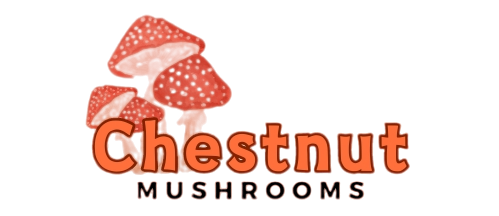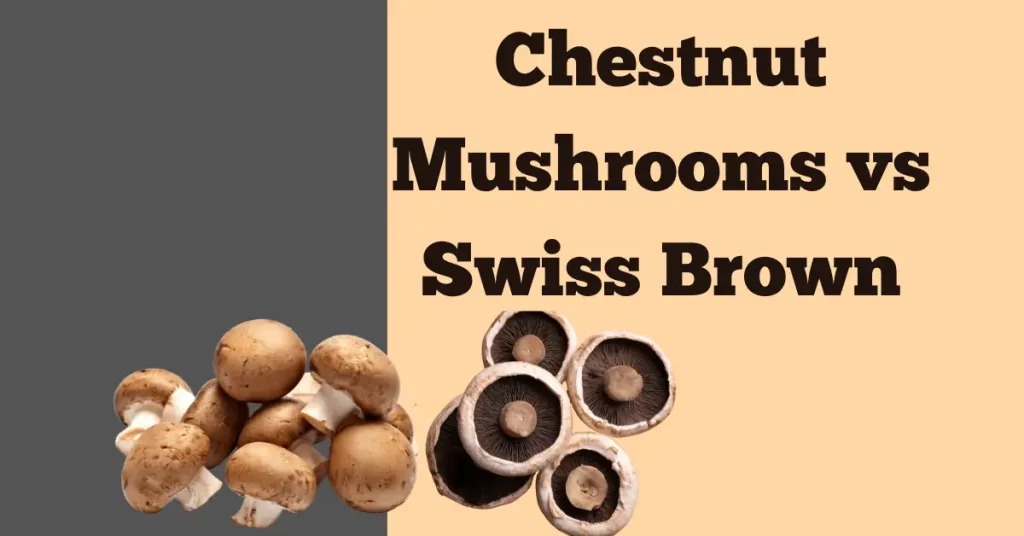Health Benefits of Chestnut Mushrooms

Chestnut mushrooms also called cremini mushrooms, are a type of white fungus. Besides their good taste and aroma, they possess excellent medicinal properties that give outstanding benefits to the health of human beings. The addition of these little fiber-rich packets can help you out with weight management issues and others. They offer several health benefits when consumed in a balanced diet.
This article will cover the nutritional profile and health benefits of chestnut mushrooms.
Rich Nutritional Profile
Chestnut mushrooms are rich in all essential nutrients that make your diet a complete meal packed with a bundle of nutrients and delightful flavor. Let’s explore the positive role of each nutrient in your body after the consumption of this little healthful bundle of joy.
| Calories | Chestnut mushrooms are low in calories that’s why chosen by individuals who are looking forward to weight management. | RDA VALUE: 22gm/100gm |
| Protein | Chestnut mushrooms are good source of plant-based proteins like beta-glucans, ergothionine and glutathione. | RDA VALUE: 3gm/100gm |
| Carbs | Carbohydrates provide you with a quick source of energy. | RDA VALUE: 3gm/100 |
| Dietary fibers | Dietary fibers play their role in maintaining a good digestive system and also maintaining satiety. | RDA VALUE: 2gm/100gm |
| Fat | Chestnut mushrooms are very low in fats which ensures a healthy heart. | RDA VALUE: >0.5gm/100gm |
| Vitamins | Chestnut mushrooms are rich source of vitamin D and other B vitamins like niacin, riboflavin and pantothenic acid that help in maintaining your overall well-being. | RDA VALUE: Vitamin D = 600 IU , Vitamin B (NIACIN)= 3.9gm/100gm, RIBOFLAVIN= 0.2gm/100 gm |
| Minerals | Selenium, copper and potassium play their parts in chestnut mushrooms. Selenium is packed with anti-oxidant properties, copper helps in the absorption of iron and the formation of red blood cells. While potassium aids in heart health and regulates blood pressure. | RDA VALUE: Selenium: 5.7mcg/100gm Potassium:420mg/100gm Copper:0.2gm/100gm |
Health Benefits of Chestnut Mushrooms
- High Source of Vitamin D
- Anti-oxidant Properties
- Immune System Support
- Cardiovascular Health
- Weight Management
High Source of Vitamin D
When we think of vitamin D, we usually imagine sunlight or foods like fish and eggs. But did you know that mushrooms—especially chestnut mushrooms—can also be a great source of this essential nutrient?
Unlike most plant-based foods, mushrooms have a unique ability to produce vitamin D when exposed to sunlight or UV light. This makes them one of the few natural, non-animal sources of this vital vitamin.
Here’s how it works:
- When chestnut mushrooms are grown or placed under UV light (even sunlight at home!), they naturally increase their vitamin D content.
- Studies show that leaving mushrooms in direct sunlight for just 15-120 minutes can boost their vitamin D2 levels to as much as 10mcg per 100g—a fantastic way to support your daily intake.
Vitamin D plays a key role in Strengthening bones and teeth, Supporting immune function and Improving mood and energy levels.
Anti-Oxidant Properties
The chestnut mushrooms are packed with anti-oxidants namely selenium and ergothionine. These anti-oxidants play a vital role in reducing and protecting our body cells from oxidative stress.
Did You Know?
An imbalance between the body’s capacity to combat reactive free radicals with antioxidants and the rate at which they are produced is what leads to oxidative stress. An imbalance like this can cause harm to cells, which in turn may exacerbate illnesses including chronic diseases, aging, and inflammation. Keeping antioxidants and free radicals in balance is essential for preserving the health of cells and general well-being.
Let’s learn how ergothioneine and selenium play their parts in reducing such oxidative stress.
Ergothioneine:
This naturally occurring amino acid derivative cannot be synthesized by the body but can easily be taken through diet especially chestnut mushrooms as these are the major source of ergothionine. Ergothionine can protect the body’s cells from oxidative stress as it neutralizes free radicals or unstable molecules which contribute to damaging cells and cause chronic diseases.
The ergothioneine is accumulated in larger concentrations around the cells which are highly exposed to oxidative stress, thus provide cell protection against such stress.
Selenium:
Selenium is required by the body in trace amounts for proper body functioning. Seleno proteins are the enzymes present in selenium that have anti-oxidant properties that help protect cells from oxidative damage from free radicals.
These enzymes also contribute to overall metabolic health by maintaining proper thyroid functioning. Selenium protects cells from DNA mutations that may lead to cancers.
Immune System Support
Two important components that particularly play a larger part in supporting or boosting the immune system are beta-glucans and B vitamins. You can have a brief look at their roles mentioned below:
Beta-glucans:
Beta-glucans are soluble dietary fibers that are found in abundant amounts and can boost the immune system. They help immune cells like neutrophils, macrophages and other natural killer cells to destroy bacteria, damaged cells, and other foreign compounds, the process is known as phagocytosis. This helps in creating the immune system to be more powerful.
On the other hand, cytokines are those messenger cells that coordinate with the immune system, that are produced in reaction to such chemicals.
- B vitamins ( Niacin and Riboflavin)
- Niacin:
Niacin is considered as the key component in converting food into energy. The appropriate amount of niacin helps work the immune system correctly. Niacin divides its energy according to the needs of immune cells. Their anti-inflammatory property helps the immune system for the synthesis of those chemicals that can cause inflammation.
Niacin produces a co-enzyme called Nicotinamide Adenine Dinucleotide (NAD), which possesses antioxidant pathways that help maintain the integrity of the immune system by removing free radicals produced in the body.
- Riboflavin:
Riboflavin is the component that helps in the operation of cells through the metabolism of protein and lipids. Flavin adenine dinucleotide (FAD) and Flavin mononucleotide (FMN) act as precursors for antioxidant defense. They help in protecting the immune system by eliminating the free radicals from the body.
Riboflavin also plays a role as an essential component for respiratory and digestive systems. It protects the mucosal lining and first line of defense against infections.
Cardiovascular Health
High cholesterol levels lead to many cardiovascular diseases. The presence of beta-glucans in chestnut mushrooms helps to prevent the accumulation of cholesterol in the bloodstream.
Fibers in chestnut mushrooms execute the process of bile acids excretion, so the removal of these bile acids may interfere with the utilization of cholesterol to synthesize new acids, in this way overall level of cholesterol remains under control.
The maintenance of these cholesterol levels thus helps in maintaining bad cholesterol levels (LDL) which may cause plaque accumulation in the arteries.
Chestnut mushrooms contain a good amount of potassium that helps in maintaining blood pressure.
Weight Management
Chestnut mushrooms are a great pick for weight management. They’re naturally low in calories and contain almost no fat. These mushrooms are also packed with dietary fiber, which helps keep your digestion smooth and makes you feel full longer. You’re less likely to snack on unhealthy foods between meals. Plus, chestnut mushrooms provide a plant-based protein boost, perfect for vegetarians or anyone wanting to add more protein to their diet without relying on meat.
So whether you’re trying to eat lighter, improve digestion, or get more protein from plants, chestnut mushrooms are a simple and tasty way to support your health and weight.
Health Concerns or Allergies
Chestnut mushrooms are the safest options to include in your daily diet. They show allergies in rare cases. They may show allergic reactions if consumed in high amounts or by individuals facing any medical conditions. For such conditions, an individual or consumer must have to consult a healthcare expert or certified nutritionist before adding these little buddies to your regular diet.
Besides all this, moderation is the key to maintaining good health.
Read: Disadvantages of Mushroom
Final Words
The nutrient-loaded chestnut mushrooms are rich in flavors. They play an integral part in weight management as they are fiber-dense and low-caloric. The presence of B vitamins and other anti-oxidants supports the body’s immune system and protects against chronic diseases.
Despite all the facts and benefits, you have to keep moderation in consumption to avoid any kind of serious health issues and allergies. So addition of chestnut mushrooms is absolutely a wholesome choice that adds extra delight to your meals by maintaining your overall health.
FAQS
Q: Can we add chestnut mushrooms to the keto diet?
Yes we can add them in keto. Because chestnut mushrooms are very low in carbs and a rich source of fibers and other essential nutrients.
Q: Can chestnut mushrooms be part of a gluten-free diet?
Chestnut mushrooms are naturally gluten-free, you can add them to a gluten-free diet.

Hi, I am Nazish Arif. I am a Food Scientist. On this Blog, I do share insights about Chestnut Mushrooms, Mushrooms Recipes, along with information of other mushrooms as well.





